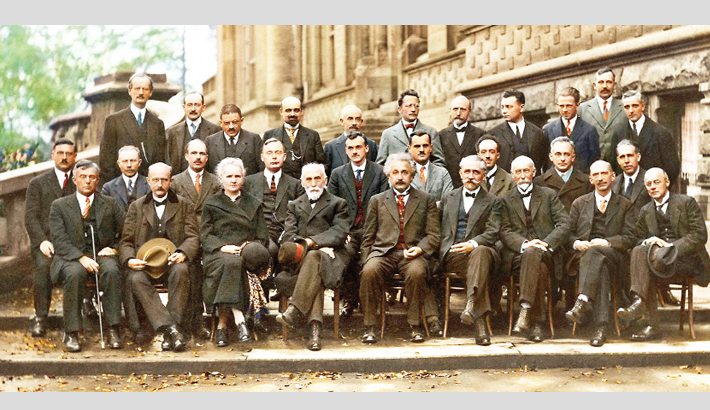Problem-solving and change management are very close to one another.
I see it in the pattern of behavior where leaders resist change and avoid problem-solving.
Why is this?
It is actually quite easy to pinpoint. Here are two of the reasons.
First, they have never learned how to solve problems.
Second, they correctly assume that solutions imply change.
I recently published a short book called Solving Problems: A Guide To Being A Person of Impact. Yes, it is simply a book on problem-solving. It helps people learn a simple process for solving problems that can be applied in almost any situation. It is based upon my Circle of Impact model of leadership.
Pioneering Problem Solvers
My inspiration for problem-solving comes from two sources. Pioneers in the fields of science. Explorers who sought to discover new lands.
In 1927, there was a gathering of scientists in Brussels, Belgium. The Solvay Conference brought together twenty-nine world-class physicists, mathematicians, and scientists from other fields. Of the 29 participants, 17 were awarded Nobel Prizes during their careers. Of the group, the first woman to receive a Nobel and the only one at the conference who had received two Nobels, was Madame Marie Curie. A hero of mine since childhood.
These men and one woman were pioneering problem-solvers. When they began, they were not known. Just like most of us, just average people, many working in obscurity, seeking to make sense of the world.
Being a problem-solver begins with self-understanding. You have to believe that you have it within you to create change. You are not looking first for validation that you are permitted to solve problems. You believe that you must solve problems. Before you can believe that idea, you must believe that you yourself can change.
The Self-Understanding of a Problem-solver
This is what I have learned. Leaders resist change and avoid solving problems because they are uncertain about their capacity to adapt to the implications of the solution. If you are worried about losing your position, you already have a problem.
I met a guy at a book signing a couple of years ago. He had a problem. He worked for a company that had a number of government contracts. He traveled the country as the company’s representative where these programs were implemented. He told me that the company would send him to do a project install. Then, before the project was completed, they’d pull him off the project to go somewhere else to begin another one. For two years, he never fulfilled the requirements of the contract that the company had with their clients. He wanted to know what I thought he should do.
I asked some basic problem-solving questions based on the Circle of Impact. Here are the main three.
1. Do you think the company understands what your job is? … No.
2. Do you feel the company respects your work? … No.
3. Do you think the company can describe the impact it seeks? … No.
After a few more questions, it was clear that he was in a perfect storm of crisis. He was being set up to be the blame for the company’s failures. He was a scapegoat. My advice to him was that he needed to leave the company as quickly as possible.
He had already done so and found a new job. He solved his problem because he knew who he was. And with the confidence that he could solve his problem and make a significant change in his life. I don’t find this pattern of behavior widely practiced.
You don’t have to solve all the world’s problems to be a person of impact. Just solve those within your reach. That’s all just do your part. My book Solving Problems provides clarity about what it means to solve problems, five different ways that people use, and the motivation to become a problems solver.


